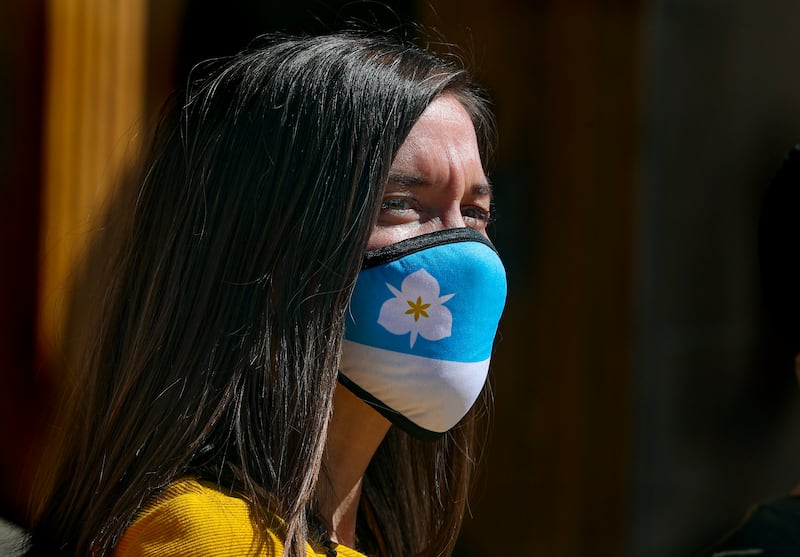Utah lawmakers wasted little time this week in showing they have scant respect for the omicron variant or the way it is spreading through the state, and scant regard for the wisdom of local governments.
No sooner had the legislative session begun than senators quickly passed a resolution to overturn Salt Lake County’s mask mandate, which was enacted by the executive director of the county health department and upheld by a vote of the County Council.
It was a sad moment for Utah lawmakers, who continue their contempt for face protections that might slow the spread of COVID-19. It follows passage of a bill in the 2021 session that declared end-game metrics for a pandemic that hadn’t really gotten going yet.
Masks are optional on Capitol Hill, and they were worn by few this week. Gov. Spencer Cox made it clear a few days ago that state buildings are exempt from Salt Lake County’s mask mandate.
Rep. Ryan Wilcox, R-Ogden, has filed a bill, HB182, that would codify this. It says, “... a local health department does not have jurisdiction over any facility, property, or area owned by the state, including the Capitol Hill complex …”
But it doesn’t stop there. The bill also limits mayors in their ability to protect the welfare of his or her residents. “A chief executive officer of a municipality may not declare by proclamation a state of emergency in response to an epidemic, a pandemic, or another public health emergency,” it says.
One could envision emergencies that might be confined to a city, such as a toxic spill from a vehicular accident or a fire with hazardous fumes. Outbreaks of disease have at times confined themselves to small geographic areas, such as when Disneyland dealt with a measles outbreak in 2014. This bill would remove a tool public office holders can use to protect the public.
This broad-brush approach serves little other than to take a swipe at Salt Lake Mayor Erin Mendenhall, who has issued citywide mask mandates.
Early in the pandemic, state leaders said the best way to respond to a health crisis was to let local governments decide how to proceed based on the unique needs in their area, rather than to impose statewide restrictions. The virus was spreading more in some areas than in others, much as it is today.
Now, it seems even local responses to outbreaks of a dangerous virus are considered out of line.
This week, lawmakers spoke of the ineffectiveness of masks in stopping the omicron variant. They talked about a family or neighborhood as being the most local of all government.
That is ironic. State lawmakers through the years have bristled when the federal government has, at times, tried to impose itself on them through mandates or rules, yet they seem to have little trouble imposing themselves on local governments under their own jurisdiction.
Salt Lake County’s mask mandate was initiated by Dr. Angela Dunn, executive director of the Salt Lake County Health Department. She also urged people to wear N95 masks or other coverings, which are more effective than the cloth masks commonly used.
Dunn was the state’s epidemiologist at the start of the pandemic. State officials praised her work. Now, they brush her aside and suppose they know better.
Dunn’s mask mandate is based on science. She has said typical cloth masks are not effective, and she has urged people to wear heavier face protection using N95 or KN95 masks.
Omicron tends to make fewer people extremely sick, on average, than the delta variant. That has led some people to believe it’s wise to deliberately contract omicron, in order to get the antibodies that result from recovery.
Experts say this is a bad idea. While recovered patients do see a spike in immunity, it’s not known how long this lasts. Those who get sick, meanwhile, run the risk of obtaining long-term side effects. More importantly, they are at risk of infecting other people who may be immunocompromised, or who may be too young to qualify for a vaccine.
But experts don’t seem to matter in this debate.
Meanwhile, the state reported earlier this week that ICU beds were 87.5% occupied, and ICU referral center beds were 91.6% full.
The last thing lawmakers should do is take away local governments’ ability to deal with this.

